Graham Reid | | 13 min read
PJ Harvey: A Place called Home
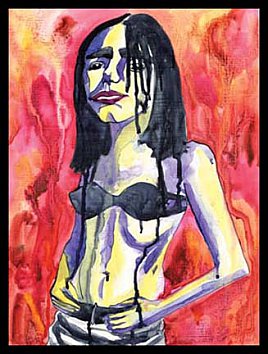
It‘s the day before their 2001 Big Day Out appearance and Polly Jean Harvey and her band are in the Playground rehearsal rooms in Newton. They are running through a real-time rehearsal of their set which is being timed to the second. They have 55 minutes on stage and Harvey wrote out the song list in the van on the way here only an hour ago.
It‘s the first time they‘ve played together in more than three weeks but you wouldn’t know it. The songs come together on the first run through.
They take a break and Harvey, more tanned but as slight as expected, obligingly chats over a cup of tea. Very rock‘n‘roll. She is relaxed, in excellent humour, and engaging company.
Is this the woman whose Rid of Me album of 93 was nominated by Q magazine as one of the “best miserable albums of all time“? This small figure struck fear into the hearts of hardened rock journalists?
Maybe once, but there is another Polly Harvey now, one more at ease with herself and her craft. It is there on her recent album Stories from the City, Stories from the Sea. And it’s here on this couch in a sparse room in central Auckland.
This Polly hoots about that Rid of Me nomination, an accolade new to her. She doesn‘t think it was a miserablist album, preferring to describe it as dark and angry, but is genuinely amused by the Q description.
Already we have entered the world of image and myth which surrounds this 30-year-old from a hamlet in rural Dorset, the woman whose intense songs with seething sexual undercurrents endear her to amateur rock psychologists.
As befits her formidable reputation, she is dressed in black, but she is not as anorexically thin as she was six or seven years ago and laughs so readily. She is relaxed, in excellent humour, and engaging company. She smiles and laughs a lot, and seems in no particular hurry to be done with this interview.
The band hasn't played together for a little while?
That's right, the band was on tour in America for three weeks just before Christmas and then we had about three and half weeks without doing anything at all so we just wanted to run through the set once.
I'm amazed how scrupulously timed it is, down to the second.
We're not usually like that but at the Big Day Out you get 55 minutes so you can't play over so that's our first attempt at putting a set together and we don't know if it going to work or not.
When did you put the set list together, did you say yesterday on the day off 'here's what I'm considering?'
No, actually on the car on the way here I picked out the songs I thought would work in a big festival situation. And we just put them in an order.
You play the Big Day Out and you are going to tour with U2 and playing big stadiums with them. When you look back on your career do you think the mere fact you are playing to so many people now is somehow shaping the way you are making music?
Not at all. Obviously when I play in front of large crowds I'm more careful about the songs I chose to use and not everything is going to work, especially when I'm not playing in front of my own audience. So in a situation like tomorrow I wouldn't play songs which demand an enormous amount of intimacy. (Laughs) But playing with a band like U2 I think the audience would be more in the same vein of what I'm doing and I could get away with doing some more lowkey and intimate things there. I'm going to try and I'll find out quite quickly if it works or not. If they boo me offstage, I'll know.
After the set tomorrow you'll do a bit of analysis?
Oh yeah, once you see the crowd in front of you, you can see if people are drifting off and you are not connecting. There are a couple of songs I do just on my own and that'll be interesting to see in this situation if they hold peoples' attention.
I know how I read a crowd. If it's a bouncing up and down crowd you stand to the side see how far the artist connects by seeing how far that bouncy thing goes. When you stand on stage how do you read a crowd? Do you only see those people at the front or are you aware that halfway back something else is happening - or not happening?
I'm very aware of having to look right to the back because as you say you can gauge how it's going. Obviously if it a great night the people way at the back are listening to every single note and moving to it then you know its reaching them.
But festivals are such different things because people are drifting in an out all the time so if you see people walking from one field to another you don't worry about that. I'm very aware of being a small part of the whole day and everyone has to play their part to make it work. It's an event not a Polly Harvey gig.
Aside from this room today what's the smallest room you've played lately.
Lately? Actually on the three week American tour we were doing very small venues. But it all happened in a strange way. Initially we were going to do this club date tour where we were playing in front of, maybe 500 and then later we were going to do an extensive tour of America. But then we got the U2 tour so that changed everything and the plan has gone awry. We will go back and do an extensive tour but it won't be until later on next year, that's why we were doing the small shows, just as a taster.
I don't imagine having [U2's manager] Paul McGuinness as your manager meant you had to audition for the U2 tour.
The funny thing is when I first met Paul, because I supported them back in 92 or 93, he came up to me after the gig and said if I ever needed a manager he'd be really interested. I was really taken aback, I'd long been an admirer of his management and of the band. But I had a manager at the time, but when I could I immediately went to him and I've been with him since 95. So the whole band I knew loved the album and they unanimously wanted us to do the whole tour, we'd just thought we'd do a section. So I'm doing everything apart from European dates.
Do you look at that with some trepidation? This is a long and big thing to do. Would it be the longest time you've been on the road?
I think the longest tour I did was in 95 and that was a year, and it was very, very tough. Having said that I was in different frame of mind then and I do feel very much that I'm ready to play for this long. I'm enjoying it really.
What is your frame of mind at the moment? Because you probably read the reviews and the consensus about the album (Stories from the City, Stories from the Sea) was, 'Oh, Polly's cheered up.' That sort of thing. Is that a fair characterisation?
Obviously that's putting it in a nutshell and it's not really like that. But I guess I am in a more stable and sound state of mind, just generally feeling a lot more at peace with myself which does translate into the music and the way I can handle the whole music business and touring. I'm really enjoying it.
What do you attribute that to?
I always avoid specifics because I don't go into that, but I think a lot of it is just getting older and a better perspective of one's self in the world. You start realising the things you thought were dreadfully important aren't really at all. You begin to siphon out what is and isn't important.
What stuff do you now consider not important?
I used to be such a perfectionist and would worry a lot about the music situation and getting everything exactly how I wanted it played and it has to be exactly there and not allowing any leeway for a band to breathe, or even to find a new way of playing songs. I used stick regimentally to how they were on the record. That's a big change because I am much more interested in seeing what people can bring to the music and moving with it. In time songs change. They start off one way and just move all the time, every week, they'll hit different peaks and change character. It's having known that that and to let that happen. It's about being in the moment more and not trying to pin things down, which is what I used to do a lot.
I take it you would not have wanted to be in Polly Harvey's band five or six years ago?
Definitely not! A lot of that probably came from when I was in my first band, John Parish was actually the leader and he wanted everything played exactly in a particular way. I think that rubbed off on me a bit because I thought that was the way you were supposed to conduct a band.
As leader you felt that was your role, to make sure this music was played exactly as you had in mind?
For a long time, certainly around 95 and the To Bring You My Love album because that album was more complex than anything I'd made before. I'd moved into using more musicians than just a three piece and that felt daunting to me and I wanted it to sound exactly as I wanted whereas with three three piece I had much more control.
Clearly this different frame of mind is reflected in the most recent album. But in a way those songs are from a long time ago, some would have been written 18 months to two year ago. With the perspective you have now, how do you see those and the person who wrote those songs about that stuff?
I think the same as I see every album I've made, it really sounds of its time. When I listen back to the early albums I can hear exactly the kind of atmosphere of not just me but what was present in the air at the time. And I think that's what I hear with this too.
How do you feel when you see Rid of Me turn up in the Q list of the best miserable albums of all time?
(Laughs) Is that right? I saw the song Rid of Me was voted one of the most angst-ridden love songs of all time. Was that it?
No, it was actually the album and the word 'miserable' they used.
(Laughs) Oh, I didn't see that. I don't think it was a miserable album, for me it was quite energetic and it really rouses me, but it is very dark and very angry. I wouldn't say it was miserable in the way of lying down and being completely depressed, it's angry and full of angry energy you don't know what to do with. It's very tight.
I figure you'd have a different perspective on it now?
Yeah, there is this misery label that follows me around.
What's the greatest myth about Polly Harvey, that you are miserable?
I think the kind of label that's been used so much is that I'm some sort of dark woman, the angry, man-hating, damning, miserable woman of rock. Which isn't what I'm like at all. A lot of people who haven't met me are quite scared of me and anticipate being very nervous around me because I'm going to fly off the handle at any minute. And I'm nothing like that at all.
Are you happy that in a sense that image is out there, it gives you some kind of cache and people aren't going to bother you?
Yeah, I guess. Not that so much but it means people don't know what I'm like and I don't particularly want to let people in to exactly how I am anyway. So this persona provides a distance of what I am that is so far away from what I am that is is quite a protection.
The problem is people project onto you things into your life which may not be true at all. Do you have a problem keeping people out of your private life? People like me for example think it fine to ask you questions about your private life that we would never ask of anyone else - and fully expect an answer.
Yeah. It's very difficult. Only last year I came to a place where I know what I will answer and what I won't. I now draw boundary lines for myself and say I'm not going to talk about that. Before I used to flounder through everything and would get get caught out and hurt and feel like my private space had been invaded. There are certain things now I won't talk about, - but you're right. Most people do want to know very personal things.
The assumption is however that you will answer. Isn't that a spin-off of the cult of fame and celebrity where people out there actually will answer those questions and do want people to know the minutae of their life? Like Posh and Becks have the camera crews around.
Exactly. I can't get over that, how they invite photographers into their house and go through the most personal things. Maybe that is why journalists assume that. A lot of rock journalism isn't like that. The music the person makes seems to dictate what is asked.
Well, you're not going to ask Posh a lot about music.
No! And artists who are delving around the darker sides of things with the music are going to get the psychological questions asked.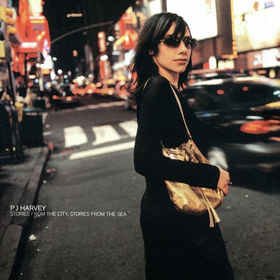
Let me ask one then, I saw a piece about The City and The Sea in which you spoke about the subconscious and conscious and the metaphors of city and sea in relation to that. That's pretty Jungian.
I often think songwriting is like that, the blurring of the two and when I am actually writing I don't feel very real, I feel suspended in time and place. It's a bit like being in one's subconscious or asleep and obviously I live by the sea [in Dorset] when I'm at home in England. I walk the tide line very often and again you've got that duality of the land and the reality of the sea as the subconscious or the dreamscape. I like to play with that idea because it does seem to me to be something about creativity and my creative writing seems to bounce off those two things.
Did you find it odd that it was the great urban metropolis of New York that so inspired you for this album?
What surprised me was how I took to it so quickly. I did have an idea I was going to enjoy being in New York and that's what drew me there. But I just felt so at home there I felt very inspired and I guess having grown up in the countryside and being very familiar with that it wasn't new to me. But to go to the city and one in a foreign country as well was very exciting and everything was new and therefore very inspiring.
Your music has always explored what we might call the American cultural contribution to the last century such as the blues and the dark southern Gothic folk stuff. It would seem this album is a more urban and poetic thing which has been a part of the New York for decades. I look at U2 career and they too went on that journey of discovery of American traditions at one point. What draws you to that? Is it having been brought up on Bob Dylan, or is it you just get there and find there is so much in that milieu you want to get into?
In terms of songwriting I was drawn to it ... this new record has gravitated towards it through people like Bob Dylan and Neil Young and those I consider great lyric writers. I'm constantly wanting to try push myself and see if I can get better. I wanted to challenge myself to write in a more lyrical and poetic way. Not only that but vocally as well and I wanted to sing in a much more melodic way than I had been doing. So that's what drew me there rather than thinking of America, in way it was much more songwriters I think I was inspired by. When I think of my time in New York I think of that place as being separate from America and I was drawn to that place at that time and I don't know where I might go next. Most of all I'm drawn to newness and finding new ground and in order to do that I have to find myself new information as well.
That's hard to do when you are touring so often.
No, I can't do it then and the next time I'll have to really think about where I want to be.
You'll just jam on the handbrake and find a place?
Maybe, but having said that I do write a lot on tour though because its easier than dragging a guitar into a hotel. I have been writing lyrics now so it'll be interesting to see what they are like at the end. When you are in it you don't really know, on tour is a bit like suspended reality anyway. Not really the real world.
But it is your real world?
Yes it is and within it you create your own world again.
One last one, first of all congratulations on your Brit Award nomination [for best female British solo artist]. When you hear of something like that, and with all due respect because you've had a lot of nominations and awards, how do you feel? Do you think, 'I hope I win', do you look at who else is nominated and think, 'Oh I'm better than them'?
I do still get excited about it actually, in the same way as I still get excited if we play Top of the Pops in England. I do look at who I'm up against too. But in my heart of hearts I know it doesn't mean anything. I mean, 'who nominated them anyway and who decides?' But it is a thrill and it's fun. I'd like to win and I still enjoy all of that, but it doesn't have great importance to me. If I don't win I don't look devastated.
You said still get a thrill out of those things, what is it that you don't like about things in your life now?
The hardest thing to deal with is the business side and having to deal with lawyers and agents and it just goes on and on. The money side too where you have to juggle with money and tax and all that. It's all difficult and I'm not in a position where I'm earning vast amounts of money either. It's still a struggle for me.
Is that another of those myths? That you're rich because you've got a good manager and all that?
I still struggle to keep afloat and have to be very careful when I'm touring and keep costs down as much as I can and budget carefully. Oh yeah, that's a myth. That's the hardest part and I'd rather not have to deal with the money side. But these days I'm able to separate the creative side and the business side.
You've got better at it?
(Laughs) Oh yes. Over the years.

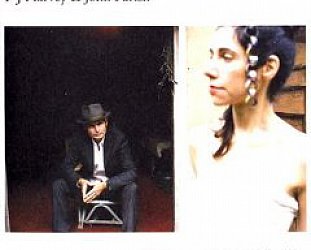
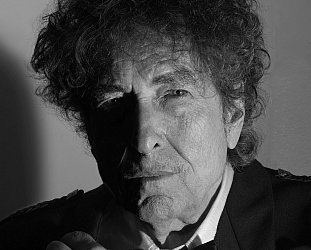
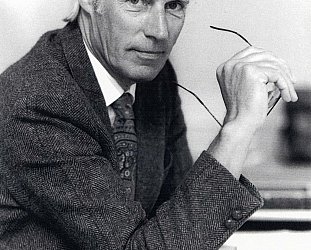
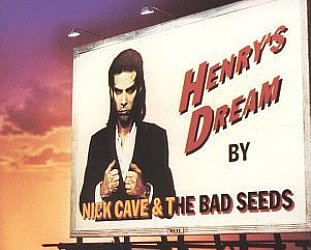
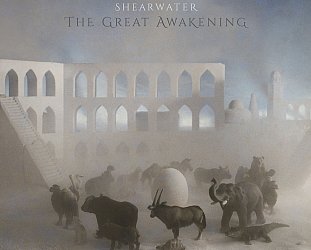
post a comment